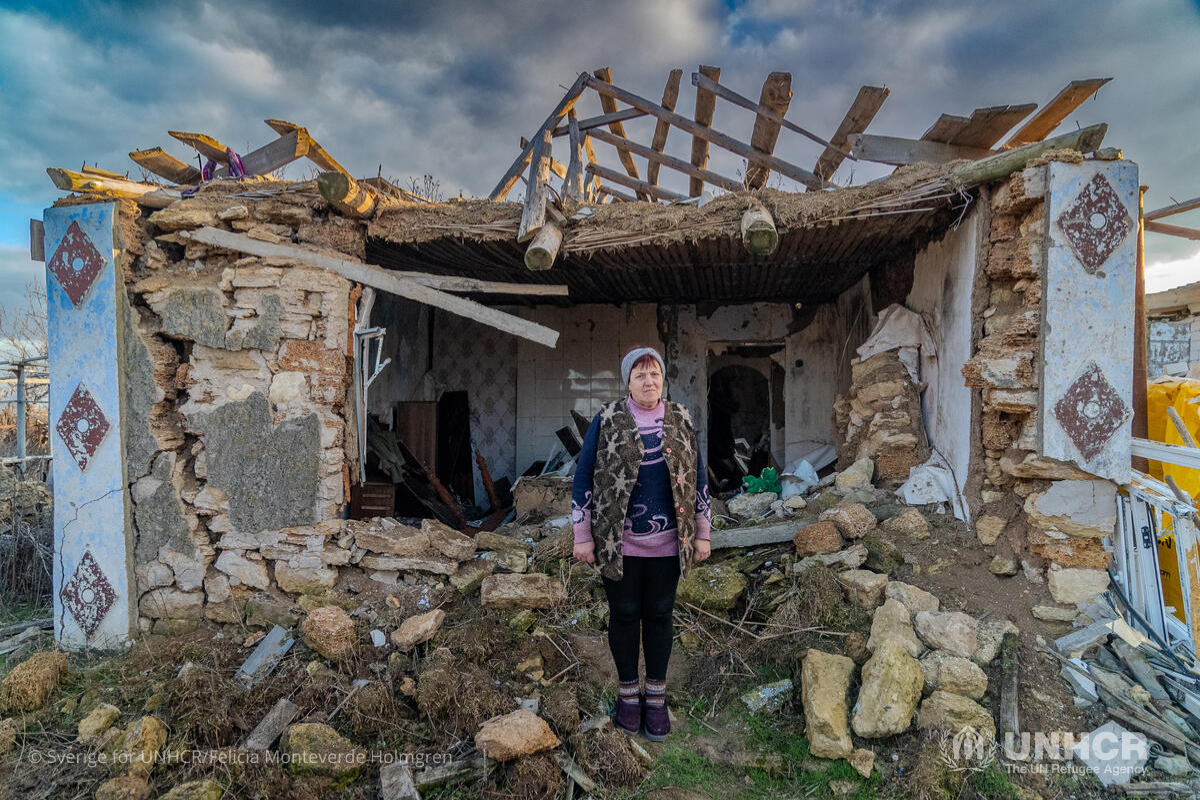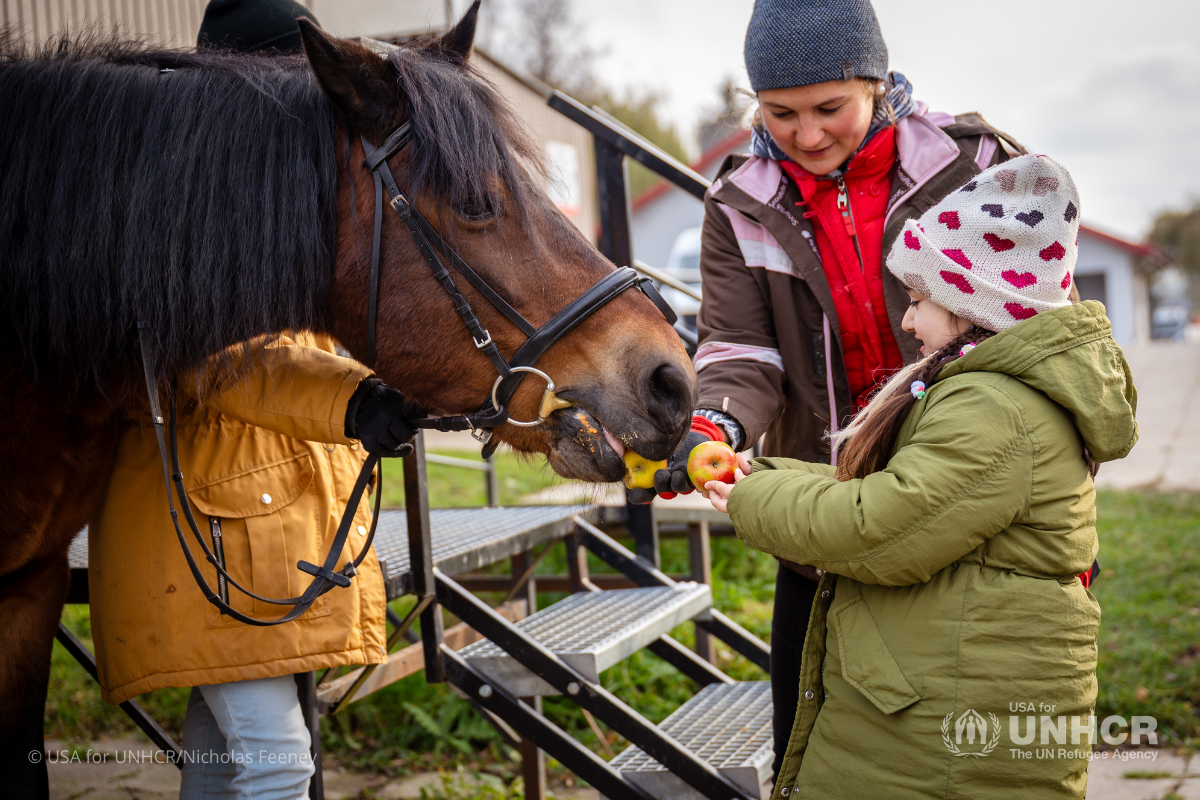Four poems about the courageous and inspiring journeys of refugees
Poetry is more than an art form — it's more than just rhythm, rhyme and tempo. For many dealing with traumatic experiences, it is a creative outlet and a powerful tool to aid healing. For refugees worldwide, poetry allows them to tell their stories, challenge themselves and envision a new tomorrow.
In celebration of National Poetry Month, we highlight four poets using the art form to express themselves and uplift refugees worldwide and in their communities.
"We Can Make This World a Better Place" by Night-Jean Muhingabo
For Night-Jean Muhingabo, growing up in a refugee camp was never easy. He recalls moments when he feared for his safety or did not have enough to eat.
To help cope with the challenges he faced, he started writing, and born out of pain was his passion for poetry.
"I started writing about what I was experiencing in the refugee camp," says Night-Jean. "To me, it was also another way to talk to God and also to share with my community what we were experiencing," he continues.
For the college senior, poetry has been more than catharsis. The art has opened doors for him, and today, Night-Jean serves as a youth coordinator at the Refugee Dream Center, where he uses his passion for poetry and education to advocate, empower and inspire other refugee youth in his community.
"Di Baladna (Our Land)" by Emtithal Mahmoud
Sudanese-American slam poet and UNHCR Goodwill Ambassador Emi Mahmoud has supported the work of the UN Refugee Agency since 2016. She uses the art of poetry for storytelling and aims to uplift the voices of refugees.
“While I could speak to people in a scientific way, or a political way, I choose poetry in the end because I think it’s the easiest way to reach people and have them respond with their humanity,” she says.
Emi's poem, "Di Baladna (Our Land)," which she performed at the October UN Climate Change Conference (COP26) in Glasgow, is a call from Mother Earth to society to restore the harm inflicted on her and a plea to save future generations from climate emergencies.
She penned the piece after lengthy conversations with refugees living on the frontlines of the climate crisis.
"Birth Water" by Bigoa Chuol
In 1991, poet Bigoa Chuol was born in Addis Ababa, Ethiopia, after her family fled what was then Sudan.
Growing up, Bigoa had little recollection and knowledge of her family's journey as refugees — except for a few anecdotes about her mother carrying her in a bucket as the family crossed the border from Ethiopia into Kenya.
Living life as a refugee, the idea of home has always been a blur to her. "I don't think I've ever really felt it was home," says Bigoa, as she reflects on her journey of resettling in Australia after years of exile.
As Bigoa grew up, she found her love for poetry and has used the art to make sense of her journey and what the future holds for the country her people call home.
"I saw myself — complicated, creative, expressing — and had this overwhelming urge to share something," she says. "I believe I've always had that urge to write,” she continues.
"Refugee" by Abdullah Kasem Al Yatim
In his poem "Refugee," Abdullah Kasem Al Yatim shares the heartbreaking account of fleeing his home country of Syria.
In the poem, he reflects, "Yesterday I was a happy child cheering, 'All Arab countries are my home.' However, today I have become a refugee who was expelled from places."
Like Abdullah, thousands of Syrian refugee children have been severely impacted by 11 years of conflict in the country — many forced to face violence and displacement.
Today, Syria remains one of the largest protracted situations in the world. More than 6.6 million Syrians have been forced to flee their country since 2011, and another 6.7 million people remain internally displaced.
How you can help…
These refugee poets have used their talents to share their unique and courageous journeys with us, but there are millions more who still face dire circumstances every day. UNHCR is on the ground in countries around the world, working to provide lifesaving aid, protection and hope to those displaced. By becoming a monthly donor, you can help UNHCR continue its work to support and uplift all refugees globally.


